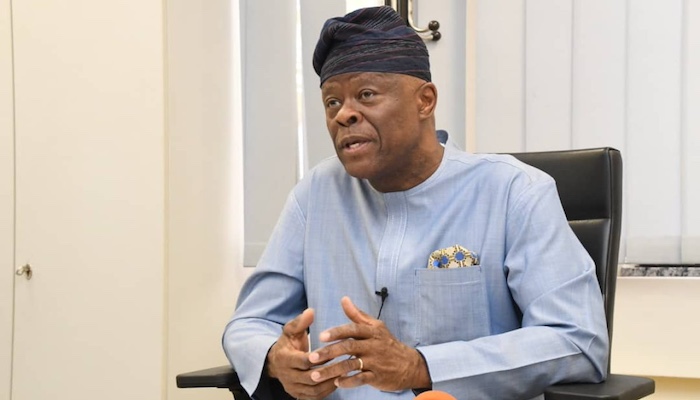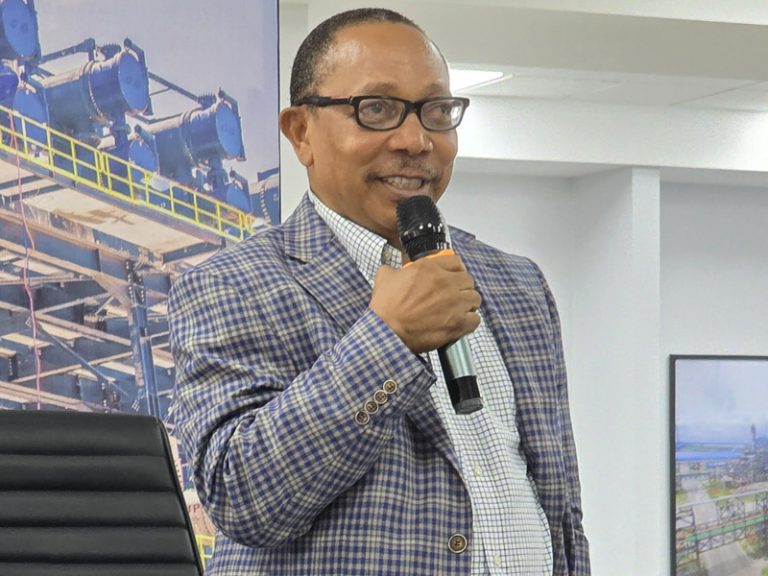
Minister of Finance and Coordinating Minister of the Economy, Mr. Wale Edun, said the federal government planned to refinance an expensive debt portfolio as part of a broader strategy to reduce debt servicing costs, enhance fiscal sustainability, and create more room for productive investment.
Edun spoke in Abuja at the opening of the 55th Annual Accountants Conference, with the theme, “Building Resilience Aligning Reforms for Nigeria’s Development.”
He explained that the move was necessary in the light of the sharp increase in debt servicing obligations in recent years.
That was as the federal government also planned to bring all government funds under CBN supervision for full transparency.
Edun said the new system aimed to track every payment and ensure all transactions remained visible, accountable, and traceable.
Speaking at the ICAN event, the minister said treasury bill rates surged from eight per cent in 2023 to nearly 24 per cent, while external debt service costs almost tripled from a budgeted N2.7 trillion to N6.7 trillion in 2024.
He said, “We are taking deliberate steps to refinance our expensive debt and bring down the cost of borrowing. This will ease fiscal pressure, free resources for development spending, and strengthen our long-term fiscal position.
“Our growth strategy is centered on productive capital formation through increased private investment. We are targeting a 7 percent GDP growth rate by 2027/2028, which will help lift millions of Nigerians out of poverty.”
He stated that the refinancing plan aligns with the administration’s medium-term growth agenda aimed at building a productive, private sector-driven economy anchored on openness, efficiency, and innovation.
The minister also highlighted the government’s drive to reposition Nigeria into an economy driven by competition and innovation, with the public sector serving as an enabler rather than a dominant actor.
He revealed the administration is investing heavily in digital infrastructure to harness the potential of the country’s youthful population, 65 per cent of whom are under the age of 35.
Through Project Bridge, a $2 billion public-private partnership supported by the World Bank and the African Development Bank, the government aimed to expand fibre optic coverage by 90,000 kilometres, building on the existing 35,000km network.
The initiative seeks to achieve 70 percent nationwide internet penetration, connecting all local governments and wards, and promoting inclusion for women and youth.
Edun said, “We are laying the foundation for a tech-driven future that will unlock opportunities for innovation, entrepreneurship, and inclusive growth.”
Edun reported that Nigeria’s fiscal position has improved significantly over the past two years, with federal revenue growing by over 70 per cent in nominal terms, an outcome he attributed to key reforms under President Bola Tinubu’s Renewed Hope Agenda, including FX and fuel market liberalisation and automation of revenue collection systems.
He emphasised the government’s commitment to raising Nigeria’s infrastructure stock from below 40 percent of GDP toward the global benchmark of 75 percent, while mobilising domestic resources through innovative financing and formalisation of the informal sector.
In addition, the Tax Reform Act seeks to harmonise tax administration, expand the tax base, and eliminate multiple taxation.
The minister also disclosed plans to strengthen digital revenue collection platforms and promote asset financialisation by optimising the federal government’s balance sheet.
“We expect subnational governments to follow suit by adopting asset optimisation strategies that enhance fiscal efficiency and revenue performance,” he said.
On social welfare, Edun said the administration is scaling up its social investment programmes through enhanced digital identification systems, ensuring targeted, transparent delivery of support to vulnerable Nigerians.
He urged members of ICAN to champion transparency and accountability in the reform process.
“As custodians of financial integrity, your role is pivotal. ICAN should consider developing a transparent rating model for accounting firms, perhaps a four-star to zero-star system, to promote excellence in tax audit and financial reporting,” Edun suggested.
The minister reaffirmed the Tinubu administration’s commitment to restoring fiscal stability, fostering private sector-led growth, and driving sustainable economic transformation through prudent debt management, digital innovation, and inclusive reforms.
The minister, who also featured in another ICAN panel session said that the federal government is working to translate macroeconomic stability into job-rich, inclusive growth.
Edun said, “But it is not enough to have economic growth that does not carry people along growth must create jobs and incomes.
“Of course, the government cannot do this alone. We need the private sector, the accounting profession, and all stakeholders to play their part.”
He said as custodians of financial integrity, ICAN’s role was pivotal in the country’s reform journey.
The minister urged the institute to develop a transparent, written model for accounting firms particularly for tax audits that aligns with global standards, adding that “Perhaps a four-star-to-zero rating system could be introduced to promote accountability and excellence.”
He said ICAN should continue to champion rigorous financial reporting and ethical stewardship among public sector accountants, ensuring responsible resource management and fostering trust in financial disclosures.
Edun said, “ICAN should continue to champion rigorous financial reporting and ethical stewardship among public sector accountants, ensuring responsible resource management and fostering trust in financial disclosures.
“One of the key responsibilities of the Ministry of Finance and the Office of the Accountant-General is to identify all government funds wherever they may be. With the aid of technology, we are able to locate, consolidate, and bring these funds into the government’s remit ensuring they are used efficiently and for the benefit of the Nigerian people.
“Accountants are also key drivers of sustainability reporting, embedding ESG principles into financial statements.
“We, in government, deeply value ICAN as a core partner in shaping sound fiscal policy and ensuring discipline and transparency. As enablers of fiscal reform, you already support robust budgeting and enforce consequence management, and we look forward to continuing to rely on you to uphold value for money in public expenditure.”
He said accountants’ expertise was essential to building the resilient institutions Nigeria needs, adding “We count on ICAN, alongside others, to come to the table and contribute meaningfully to this transformative journey.”
James Emejo



